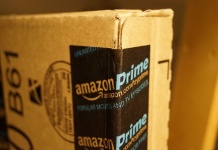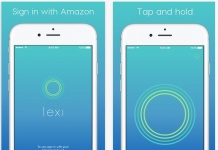 Self-publishing author Will Entrekin has written a very interesting blog post about his participation in Amazon’s “Kindle Select” program, in which his books are made available exclusively on Amazon and are part of the Amazon Prime Kindle Owners’ Lending Library.
Self-publishing author Will Entrekin has written a very interesting blog post about his participation in Amazon’s “Kindle Select” program, in which his books are made available exclusively on Amazon and are part of the Amazon Prime Kindle Owners’ Lending Library.
In the first part, he talks about why he made the decision to go exclusive with Amazon. It boiled down to having greater comfort developing for Amazon’s platform, and liking the kind of control Amazon gave him over the presentation of his book that he didn’t feel he could get with Barnes & Noble. (And also, he never ended up selling that many copies of works he had offered through B&N anyway.)
Then he gets into discussing the Lending Library.
This is an interesting wrinkle here in this story. See, Amazon dedicates a set amount of money (right now it’s $700,000. It was $500,000. It fluctuates a bit) for it’s Amazon Kindle Owners’ Lending Library, and so, when readers “borrow” one of my books, it’s not like giving it away. I get a little portion of that money.
The interesting thing: apparently, the size of the portion one receives is unrelated to the price of the book borrowed. At least, so far as I can see. I have several short stories and an essay available for sale for 99 cents, and for which I receive 35 cents or so of every sale (as opposed to the $1.70 I would receive from a $2.99 sale, or the $3.50 I receive from a $4.99 sale). But whether someone “borrows” a 99-cent short story or a $4.99 novel (or even, I would assume, novels costing $7.99 or, egregiously, $9.99 or $12.99 or higher yet), the royalty is (or was, anyway) $1.70.
Entrekin notes that, of course, the amount will fluctuate over time. But it’s still a decent chunk of money, and it has important implications for pricing: if you’re going to get the same royalties every time your book gets checked out, why price higher? And it’s also a pretty good argument to go exclusive with Amazon, he points out—if Amazon wants to give you money for letting someone read your book without even having to pay for it, why not let them?
I would point out that nobody knows how much longer Amazon will be content to pay authors that kind of money for library checkouts—but on the other hand, as long as you don’t let yourself get too dependent on it, perhaps it is a good idea to grab the money while you can.

































Sounds disturbingly like the free “hits” a drug dealer offers in advance of addiction.
What might happen down the road is that the pool of library books and the pool of users will get bigger but the cash pool won’t so the author payback would simply decline. Even now, there are bound to be books that don’t bring in any revenue because they don’t get checked out.
It’s really a promotional gamble, a lottery.
The thing is, books that get loaned out will be generating reads (which free books don’t always produce) and those reads will generate a measure of reviews. And if Amazon starts offering up a tally of “most popular Prime ebooks” as another visibility-enhancer, that could be a further incentive for publishers/authors to partake of the Prime Library Lottery.
My husband and I love our new Kindle Fire. It’s lightweight, easy to use and has a great interface. The first thing I recommend anyone with a new Kindle do is install the nook app. We got our instructions from http://www.kindlemad.com through google. It basically unlocks all the Android marketplace apps and unlocks the device. I am one very happy Kindle owner!
I’m thinking about this for my next book. The downside is that you discriminate against readers who don’t use Kindles, and you’re disloyal to people like Mark Coker at Smashwords who have been rooting for indies from the beginning. The upside is that you get more exposure at Amazon and are offered five “free days” when you can price your book at $0 to generate interest, plus of course whatever you get from “borrows”, as they call them (the word is “loans”, Amazon, if you’re reading this!)
For writers like me, who find most of their sales come through Amazon, it makes sense, but I’m uneasy about the ruthlessness of the thinking behind the scheme. I may – perhaps – try it for a single period of 90 days and see what happens.